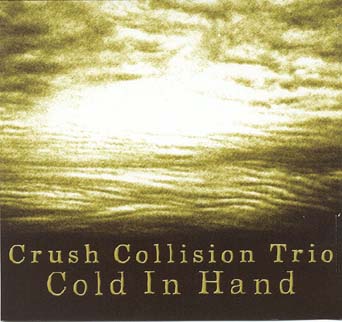Fall Music: Cheer Up Poems and Crush Collision
With these pieces, Chris Godsey begins an occasional series of reviews of Minnesota-made CDs. If you have a CD that you'd like him to hear, email this site at editor@mnartists.org.

Our Two Strings, by Cheer Up Poems
Cheer Up Poems’ Our Two Strings was released in May, but it makes a perfect autumn album; Bill Reichelt’s ephemeral songs drift along toward their ends like falling yellow leaves, lovely and sad then gone suddenly, too soon.
Reichelt, who’s also a member of the Duluth band Dog Pookah, sings beneath or amid hazy acoustic strumming and gentle electronic drones. His raspy, plaintive delivery recalls the Paul Westerberg of “Skyway” and “Here Comes a Regular.” Fuzzed-up guitar, ethereal lap steel and lots of underlying keyboard tones course warm and liquid throughout the album. It’s all quite drowsy and comfortable—like a pleasant buzz and no conscious worries on the first night that really feels like October.
Nothing on the album is imposing. Spaces between songs come as smooth pauses, not breaks in sound or continuity. Reichelt’s voice is woven so well that it’s possible to finish the album and have no recollection of specific lyrics—only of warm melody and pleasant sounds some words about some stuff..
Cold in Hand, by Crush Collision Trio
Crush Collision Trio breaks no new ground on Cold in Hand, but the album and its players work their country blues soil with honesty and Midwestern diligence.
The trio (named after a staged 1896 train crash) puts forth spare, faithful renditions of classic and original tunes. Matt Yetter plays understated mandolin; percussionist Mikkel Beckmen (who goes way back with Duluth country blues practicioner Charlie Parr) makes noise on a washboard and refrigerator parts, and does some shouting on “Bringing up Fire”; Lonesome Dan Kase plays guitar and sings.
Kase, who’s from Michigan, often roughs up his naturally clear voice or adopts a twang. Both affectations are conspicuous, and they reflect the album’s only real weakness: sincerity can’t replace authenticity. Although Kase and his partners play every song with skill and respect, the album sounds like imitation—like an earnest country blues act put on by guys who live for the music and its trappings, but who will never know its realities.